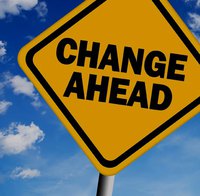Formulating a Post Season Transition Phase for Triathletes
Posted by Matt Russ on 2nd Jul 2016
The transition phase may be referred to as off season training but is not a time to take off. Actually, there is no "off" season in a proper training macro plan. The transition phase by definition is the time of year to let your body fully recover, both mentally and physically, while maintaining a level of fitness. It is the time to let those nagging little injuries heal up. The transition phase can last 4-6 weeks and occurs directly after the final peak of the season.
 I usually give my athletes a week of mostly rest and active recovery following a peak, and then start the transition phase which is the final phase of their season. I give them the most flexibility and autonomy during this period as I want them to experience a release from structure, but also closely monitor volume to ensure total recovery. I advise the athlete to take extra rest days as needed, without any implication, and we schedule a few weeks with consecutive days off. Cross training and other activities are encouraged, especially for runners. I like to give the joints and connective tissue a break from the impact of running and will schedule runs as little as 2x per week for elite athletes, or as few as zero for masters level athletes. I do not encourage racing during the transition phase other than at a base or non-competitive level; with no goals or devices. I discouraged any race that requires preparation or volume increase.
I usually give my athletes a week of mostly rest and active recovery following a peak, and then start the transition phase which is the final phase of their season. I give them the most flexibility and autonomy during this period as I want them to experience a release from structure, but also closely monitor volume to ensure total recovery. I advise the athlete to take extra rest days as needed, without any implication, and we schedule a few weeks with consecutive days off. Cross training and other activities are encouraged, especially for runners. I like to give the joints and connective tissue a break from the impact of running and will schedule runs as little as 2x per week for elite athletes, or as few as zero for masters level athletes. I do not encourage racing during the transition phase other than at a base or non-competitive level; with no goals or devices. I discouraged any race that requires preparation or volume increase.
A typical transition week will have the athlete working out 4-5 days per week with rest days in between. There is no progression. Volume can be greatly reduced as long as there are brief bouts of intensity (spin ups, strides, short sprints in the pool). I will cut interval volume way down but never eliminate higher intensities completely to maintain a base level of aerobic capacity. I do encourage one longer work out per week at a base level to maintain endurance if necessary for long course athletes. Some light strength training can occur, mainly to acclimate the body for resistance training to come. Repetitions are high, weight low, and the number of sets small. Core and flexibility work is emphasized.
Mentally it may be hard for the athlete to transition for the first time following peak. If they are used to a high volume and high intensity regime, they may feel they are going to loose too much fitness. But I have found that athletes who transition a few seasons actually look forward to the phase and may train even harder leading up to transition. It is their light at the end of the tunnel and a much welcome and needed break. This mental respite is often as needed as the physical. I like my athletes coming out of transition feeling a bit under trained and ready for the increased volume in the next phase.
Conversely: taking complete time off from training means spending a majority of your base season making up for lost ground. Each season should build on the last. For instance, taking 8 weeks off you may require that time plus to build fitness back to the previous level. In this case athletes' find their race times are similar to last years (or worse).
The transition phase is an critical part of an annual training plan and should not be overlooked. Connective tissue will take weeks to regenerate, and without this period your body may be in a perpetual state of decline. Nagging injuries will continue to occur. Mental burnout may manifest itself before the next season even begins. This short, non-training phase is of tantamount importance if the athlete wants to build upon their previous performance.
Matt Russ has coached and trained athletes up to the professional level, domestically and internationally, for over 20 years. He achieved the highest level of licensing by both USA Triathlon and USA Cycling, and is a licensed USA Track and Field Coach. Matt is Head Coach and owner of The Sport Factory. He is also a free lance author and his articles have been featured in a variety of magazines and websites. Visit www.sportfactory.com for more information or email him at coachmatt@sportfactory.com


